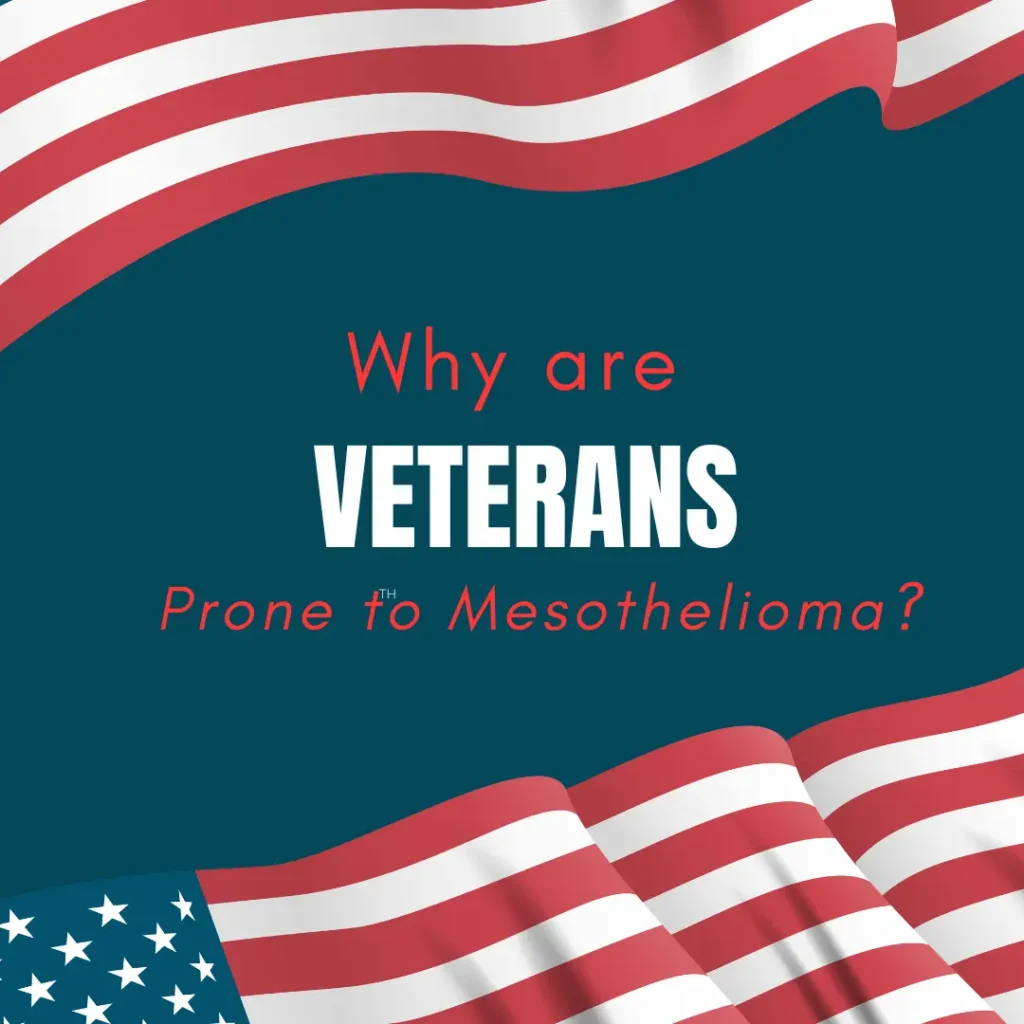Key takeaways: Veterans are prone to mesothelioma because asbestos was heavily used during the twentieth century in all facets of military service—living quarters, vehicles, ships, etc. All five branches of the military utilized asbestos, albeit to varying degrees. Veterans are entitled to unique compensatory actions through the Department of Veterans Affairs, like VA claims or VA pensions.

Asbestos Exposure in the Military
Veterans that served in the military from the 1930s until the 1980s likely encountered asbestos. Asbestos was embraced as a “super-product” because it was chemically inert, had fire retardant qualities, enhanced the durability of the products it was added to, and was relatively inexpensive.
Asbestos was used:
- In barracks
- To construct military vehicles and planes (insulation, engines, brakes, plane wings, etc.)
- In ammunition and ammunition storage
- In ships and shipyards
- In the pipes, insulation, and floor/ceiling tiles of military buildings
- To supplement gear, clothing, and building products
Veterans and Mesothelioma
Notably, this isn’t an exhaustive list of the ways in which veterans may have encountered asbestos. More recently, the 9/11 attacks on the World Trade Center released approximately 300-400 tons of asbestos, which exposed first responders and people in the military alike. So, although a majority of asbestos exposure occurred in the twentieth century, people in the military are still at a higher risk for asbestos exposure (compared to the general public) because of existing infrastructure and maintenance of said infrastructure.
Although all five branches of the military relied on asbestos, the Navy utilized the most asbestos. Their ships (and surrounding shipyards) were constructed and insulated with asbestos. When Naval members went underway, they lived on these ships for extended periods of time, and were likely to encounter asbestos—even if that asbestos was technically “safe” because it was sealed.
Mechanics and repair technicians in all five branches were at higher risk compared to their fellow servicemembers for asbestos exposure. In fact, on the VA’s website, they list the areas of “carpentry, demolition, construction, mining, milling, and shipyards” as a priority for compensation. Their risk was significantly higher because they dealt with asbestos most closely, and would be required to move, repair, and physically handle asbestos (and products containing asbestos).
So, because of an extensive utilization of asbestos, the U.S. military put millions of servicemen at risk for developing mesothelioma. Today, veterans account for about 30% of all mesothelioma cases.
Now What?
Veterans are eligible for special benefits through the Department of Veterans Affairs (VA). Veterans can file claims through the VA, so long as they can ensure that a.) they have an asbestos-related disease; and b.) that they were exposed to asbestos during their enlistment. Usually, doctors will have to write a note that validates the asbestos exposure as being related to their patients’ military involvement. From there, the VA offers a variety of compensatory options, like:
- Disability benefits
- Pension
- VA claims, which function like a trust fund
If you served in the military and believe you were exposed to asbestos, it’s imperative to a.) inform your doctor; and b.) consider seeking financial justice.
If you or a loved one has been diagnosed with mesothelioma or another asbestos-related disease, we are here to help. Our website offers useful information regarding types of asbestos-related diseases, hospitals to receive treatment in Pennsylvania, a variety of different treatment options, and more. For more information or for legal help, please call us at (800) 505-6000 or simply fill out our contact form.
Sources:
https://www.va.gov/disability/eligibility/hazardous-materials-exposure/asbestos